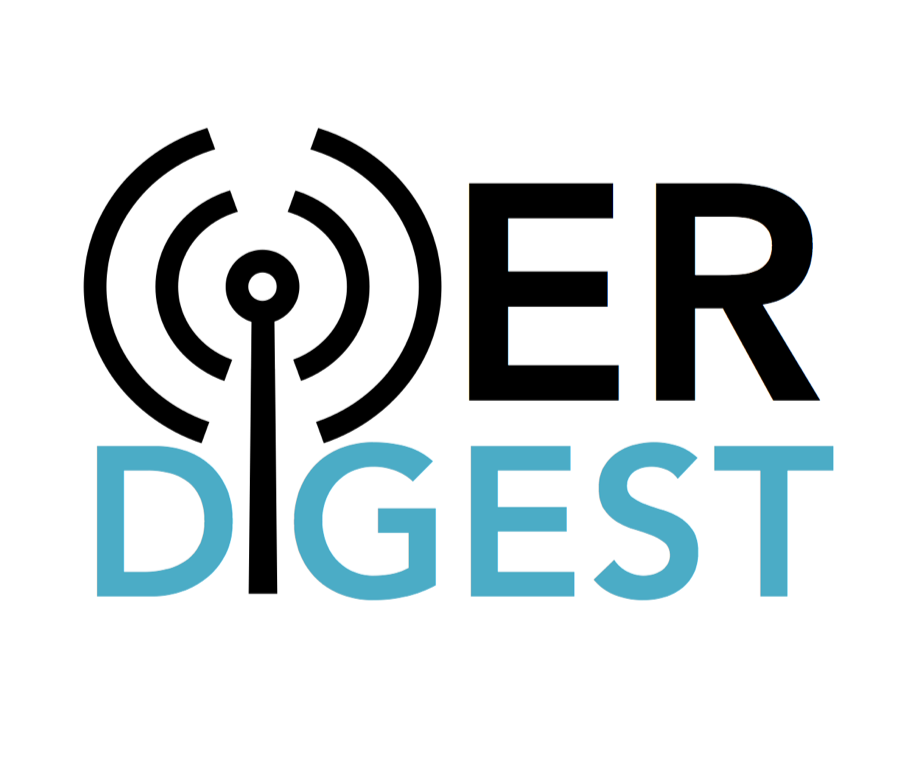OER Digest – November 8th, 2018
From Kaitlyn Vitez, USPIRG | Volume 69 | November 8th, 2018With updates from Camille Thomas and Mo Nyamweya
THE OER DIGEST
Your bi-weekly newsletter for open education updates, opportunities, and reminders
ELECTION RESULTS: The midterm elections this past Tuesday offer new opportunities to push for accessible and affordable education. One notable race was in Colorado, where former U.S. Representative Jared Polis, a sponsor of the Affordable College Textbook Act, was elected governor.TECH SUPPORT: The 2018 Campus Computing Survey revealed that two-thirds of IT budgets have not recovered from cuts after the Great Recession, but had good news for supporters of OER. 64% of colleges had programs to encourage OER use, up 30% from 2014. FACULTY-TO-FACULTY ADOPTION: Steven Bell of the Temple University Libraries released a new survey of 1,400 undergraduate instructors, “Course Materials Adoption: A Faculty Survey and Outlook for the OER Landscape.” The survey found that 38% of faculty who made the choice to use OER got recommendations from their peers, followed by 34% from a repository and less than 15% from a LibGuide. On the whole, the survey found that librarians are the least-consulted resource available to faculty, and that faculty relied overwhelming on the largest OER sites like OpenStax and the Open Textbook Library to identify high-quality resources quickly.COMPARING COMMERCIAL “OER”: Abbey Elder of the Iowa State Library has released a new tool for comparing commercial platforms that use open content.While there is still heated debate within the open community about the role and impact of these products, the spreadsheet provides helpful comparison of platforms on the CARE criteria, the source of the base text, and more. The document is open for members of the community to enter their own research and experiences with these commercial products.STUDENT REVIEWS: According to a new survey by FlatWorld, 15% of students used student loans to pay for books; that rose to 25% among students who spent more than $600 during the semester on course materials. The survey also found that faculty members who assign materials under $30 are 10 times more likely to get a positive review from students in their classes.CRITICAL OPENNESS: Participants of OpenCon 2018 engaged in discussions about “critical openness”. As the open movement evolves, advocates seek ways to ensure open knowledge structures do not repeat historically exclusive and imposing practices. Educator and researcher, Monica Brown, reflected on her experience in a blog post. Organized by SPARC and the Right to Research Coalition, OpenCon seeks to bring together folks from diverse disciplines and backgrounds to inspire and motivate the Open community through networking and action planning.
OPEN CONNECTIONS
Conferences, jobs, and other OER-related opportunities
SAVE THE DATE: OpenEd19 will be October 30th - November 1st, 2019 in Phoenix, AZ.REGISTER: Indiana is hosting a #GoOpen Summit in January 2019. Registration is open here.REGISTER: Illinois is hosting a Community College OER Summit on November 30th, 2018. Registration closes on November 16th.REGISTER: Oregon is holding an OER Symposium on May 17th, 2019. Registration is open here.PROPOSALS: The call for proposals for sessions at the Library Publishing Forum in Vancouver closes on November 30th. The conference will be held May 8-10th, 2019. PROPOSALS: The call for proposals and registration is open for the Wisconsin E-ffordability Summit on March 27th-28th, 2019. Proposals are due on December 3rd, 2018.PROPOSALS: Organizers of the OER19 conference in Galway, Ireland on April 10-11th, 2019, have opened up their call for proposals.
STORIES FROM THE FIELD
Quick snapshots of those making change on the ground level, and those impacted
FROM PENNSYLVANIA: “Assistant Professor and Department Chair of Kemp Library Megan P. Smith is currently working hard to convince professors to provide OER for students. “[East Stroudsburg University] students come from a variety of financial backgrounds and a lot of them are in places where they cannot afford even cheaper textbooks of 20 or 30 dollars” she says. “This is a part of financial aid that faculty can directly affect by easing the debt of students.” Read more >FROM TEXAS: “These alternatives provide many benefits and incentives to professors. Since everyone in a class can access them, it can improve learning outcomes and allows classes to adapt. “Faculty appreciate the opportunity to try something new,” Open Educational Resources Coordinator Ariana Santiago said. “I see people pulling from multiple sources and open textbooks.” Read more >
HOT OFF THE PRESS
Each edition, we’ll highlight an interesting, new, openly-licensed resource
Apurva Ashok and Zoe Wake Hyde have released The Rebus Guide to Publishing Open Textbooks (So Far). The “book-in-progress” is informed by, and based upon, their past two years of work with the open community on publishing OER, and will be further edited and expanded in the Rebus Community Forum.
WEIGH IN
Interesting Discussions and Strategic Reads to Repost or Share
Great to Share >>
- The Academic Minute | WAMC
Interesting to Consider >>
- Could OER Help Queer Students? | New America
- The Need For An Open Assessment Platform | Medium
- What Textbook Companies Will Do To Get Professors to Buy Their Product | The Daily Northwestern
- How Open Education Relates to Socioeconomics | The NYU Dispatch
- Is Open Content Enough? Where Open Advocates Say the Movement Must Go Next | EdSurge
Have suggestions for the next edition? Let us know at oerdigest@gmail.com, or tweet us @OERdigest.
The OER Digest is a public newsletter distributed to a broad group of stakeholders across the higher education community. You can join the open Google Group or check out the distribution list here.
